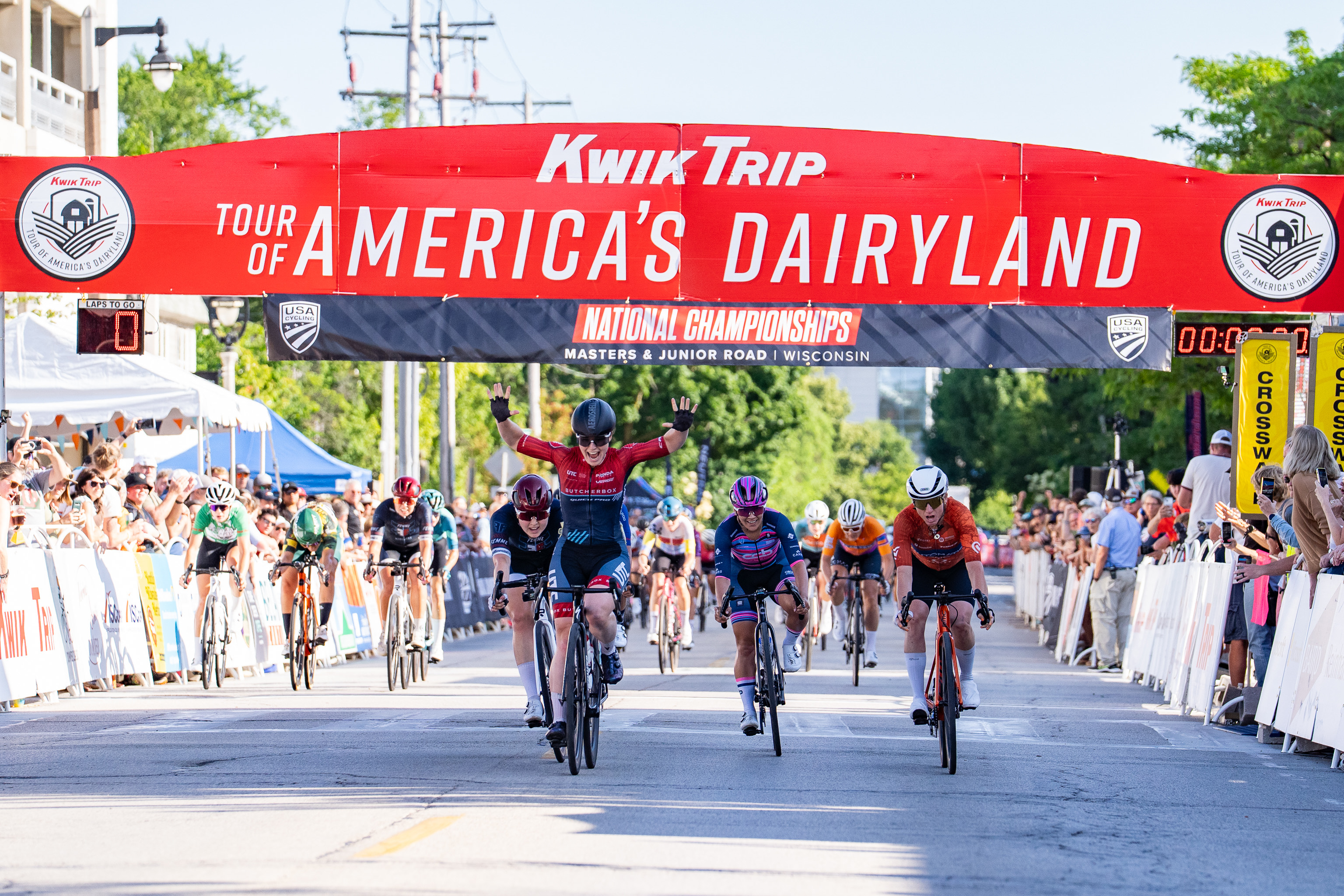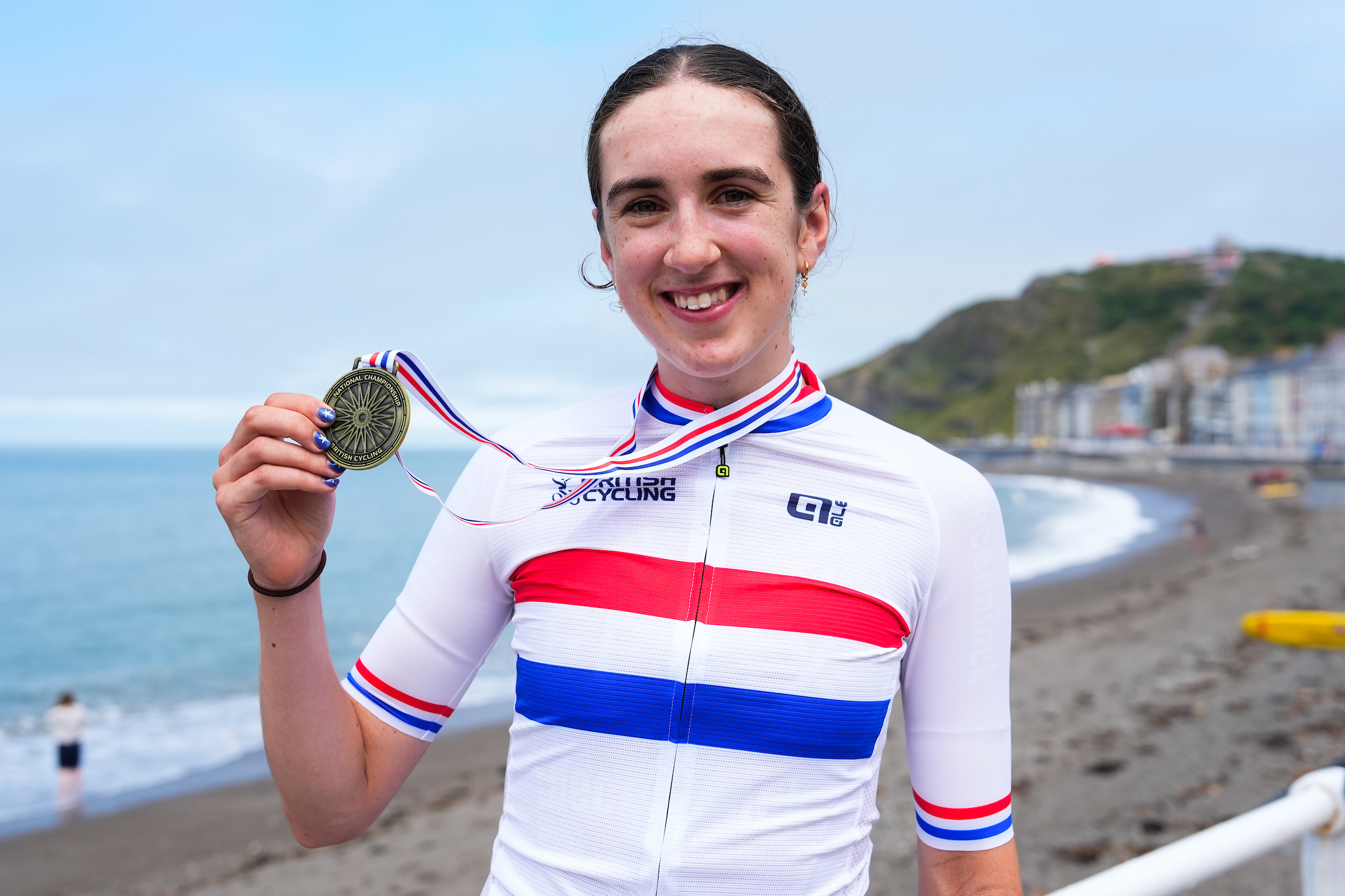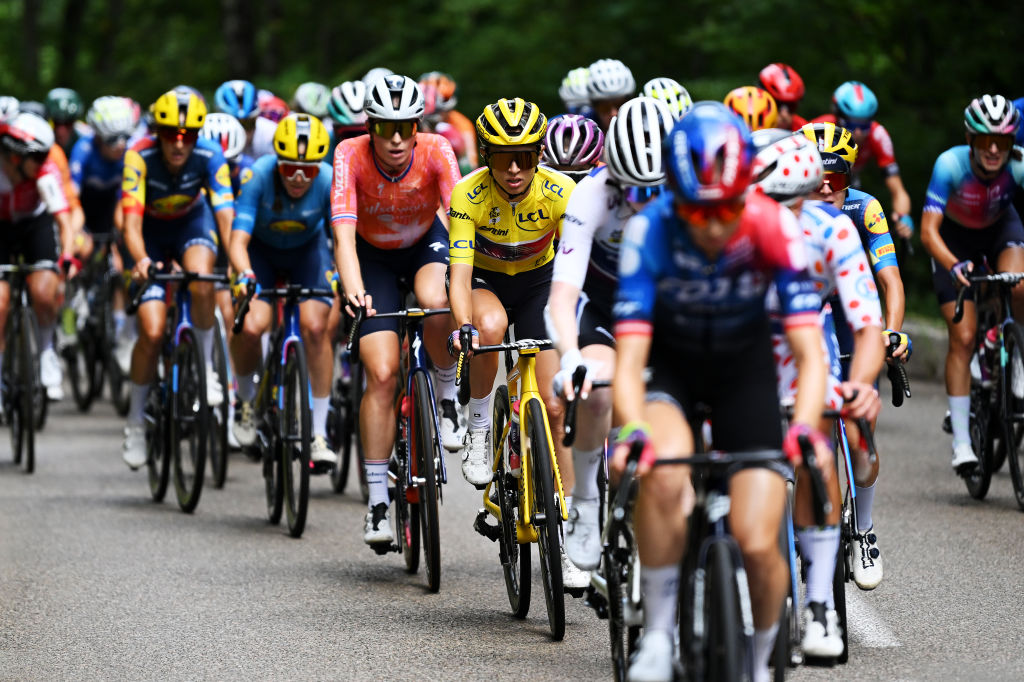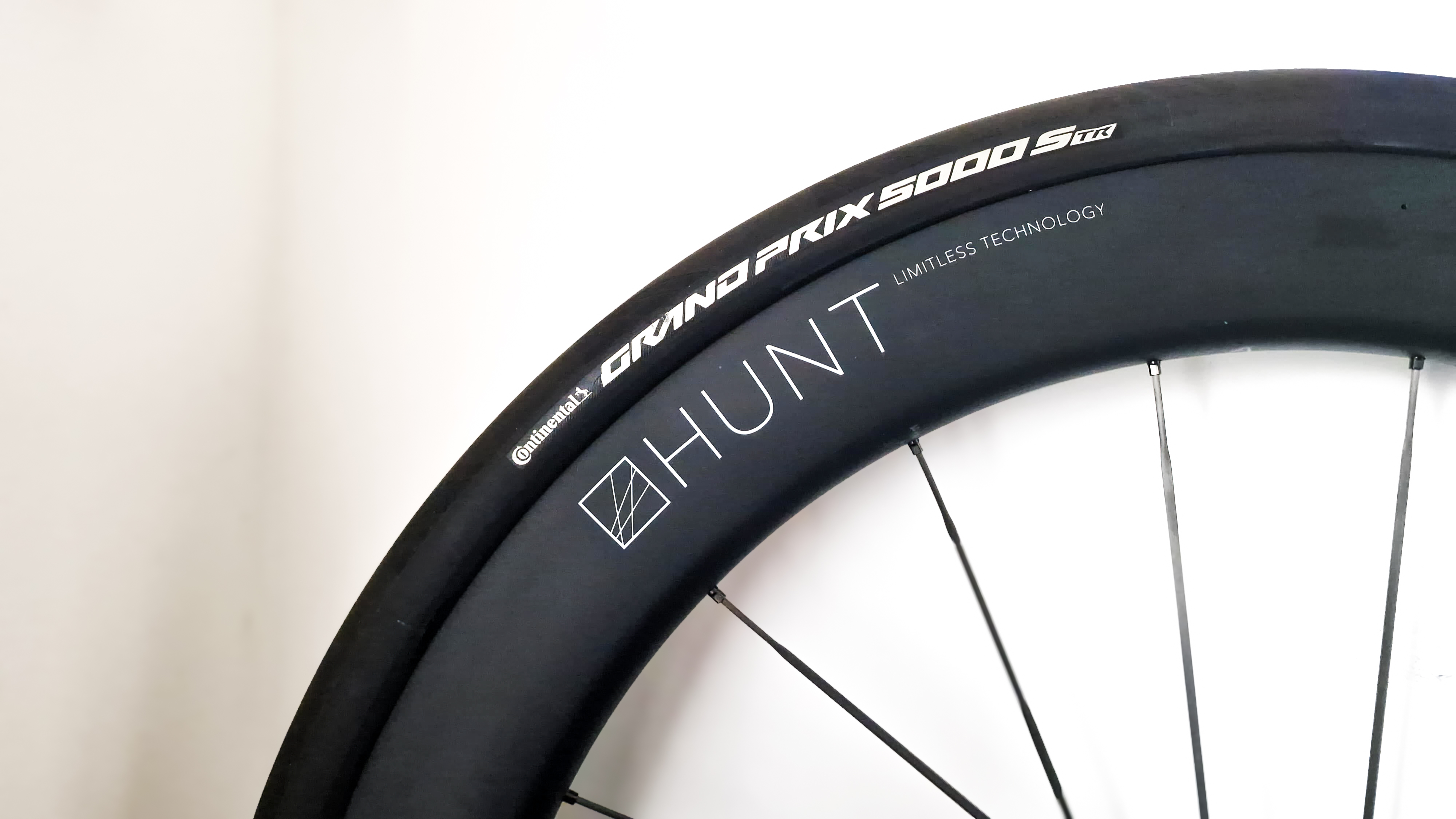Kings of the north – Arctic Race of Norway preview
Johannessen, Clarke, Hermans, Bol, Groenewegen headline four-day race
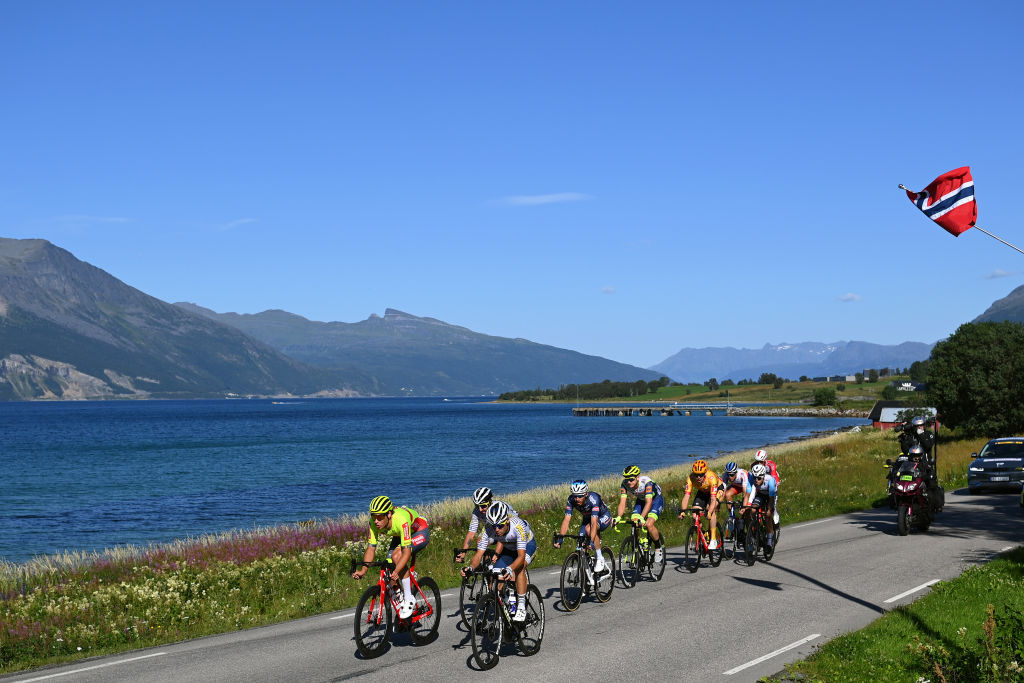
The four-day Arctic Race of Norway kicks off on Thursday, this year's ninth edition the first to avoid a visit to the Arctic Circle, rendering the name somewhat irrelevant.
After three runner-up spots for home riders in the past four editions of the race, there will be hope that a Norwegian can take overall glory following Thor Hushovd's triumph at the inaugural edition in 2013.
Uno-X talent, champion of last year's Tour de l'Avenir Tobias Halland Johannessen is possibly the man most likely, the 22-year-old having won the youth classification and finished 10th overall at the Critérium du Dauphiné back in June.
Andreas Leknessund (Team DSM) is another youthful home talent who broke through with a stage win at the Tour de Suisse earlier this summer. Israel-Premier Tech's Carl Frederik Hagen can't be counted out either, despite not yet replicating his top 10 at the 2019 Vuelta a España.
Kristian Asvold returns with Human Powered Health, having delivered a fifth place for Team Coop last time around. Cofidis rider Victor Lafay, meanwhile, stood third on the final podium in 2021 and will be hoping to go two better this year.
Quinten Hermans, who's riding out his last few months with Intermarché-Wanty-Gobert before a move to Alpecin-Deceuninck for 2023, could be another to watch, as could TotalEnergies veteran Víctor de la Parte.
For the sprints, Tour de France stage winner Dylan Groenewegen (BikeExchange-Jayco) is the stand-out name as the Dutchman looks to build up to late-season goals, including the Bemer Cyclassics in Hamburg.
He'll face competition from Amaury Capiot (Arkéa-Samsic), Edvald Boasson Hagen (TotalEnergies), Cees Bol (Team DSM), Kristian Sbaragli (Alpecin-Deceuninck), and Matteo Malucelli (China Glory), with Friday's stage 2 likely to be the only nailed-on sprint of the race.
Other major names taking the start in Mo i Rana on Thursday include Israel-Premier Tech's Tour de France stage winning pairing of Hugo Houle and Simon Clarke, with the team searching for results – and UCI points. Breakaway specialist Taco van der Hoorn (Intermarché-Wanty-Gobert) is another rider who should enjoy the hills of northern Norway.
Elsewhere, there are more young talents to keep an eye on – 21-year-old Kévin Vauquelin (Arkéa-Samsic), 22-year-old Kevin Colleoni (BikeExchange-Jayco), and 22-year-old Henri Vandenabeele (Team DSM) among them.
British Continental squad Trinity Racing are also in Norway, with Jumbo-Visma-bound Thomas Gloag and future BikeExchange riders Rudy Porter and Blake Quick among the talented six-man selection.
A new route with a familiar formula
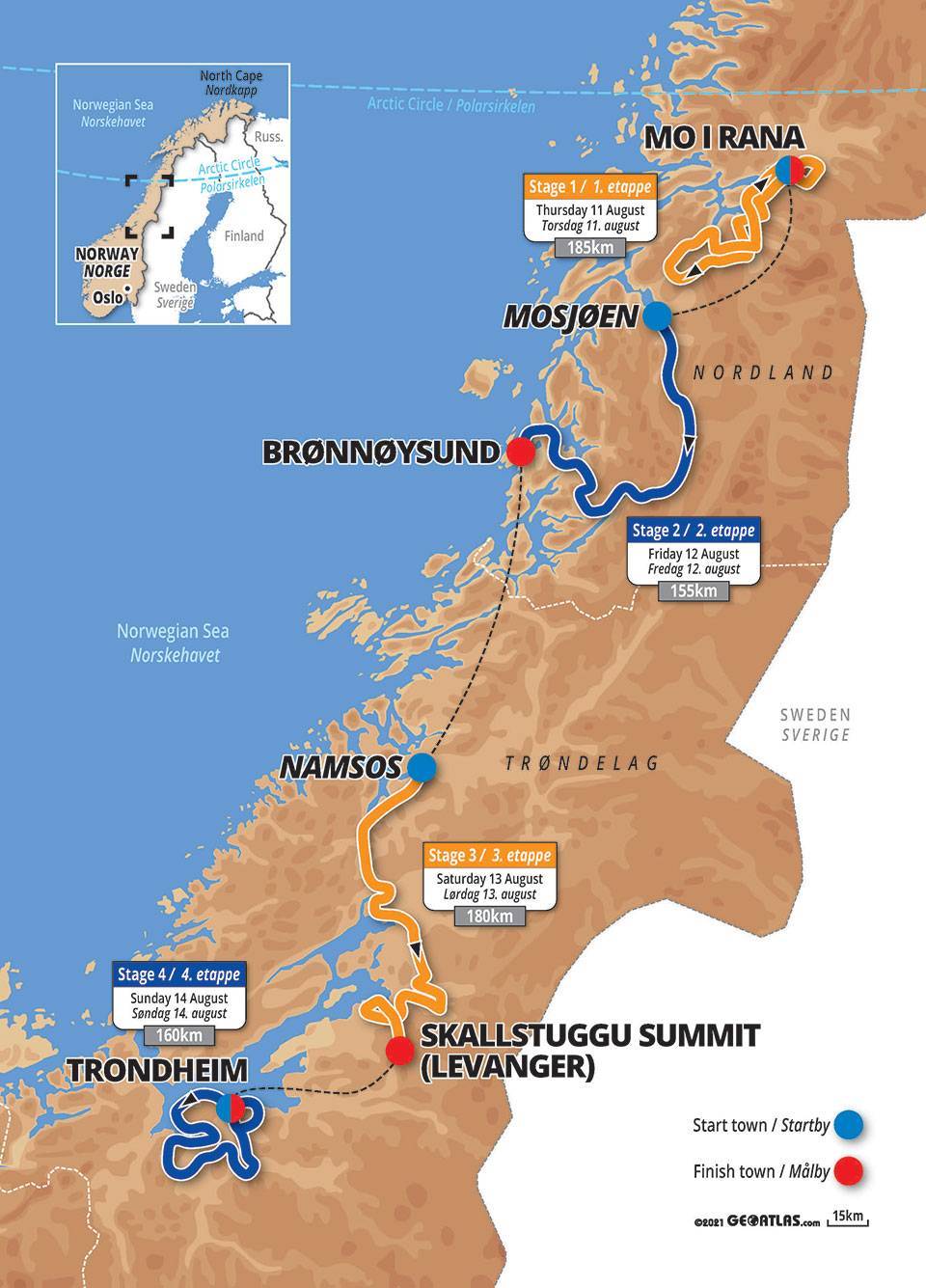
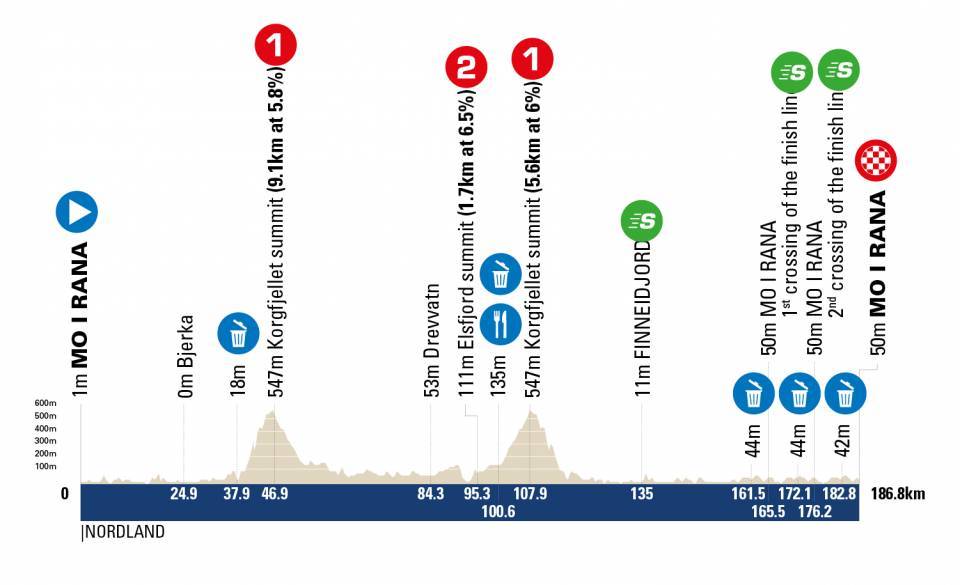
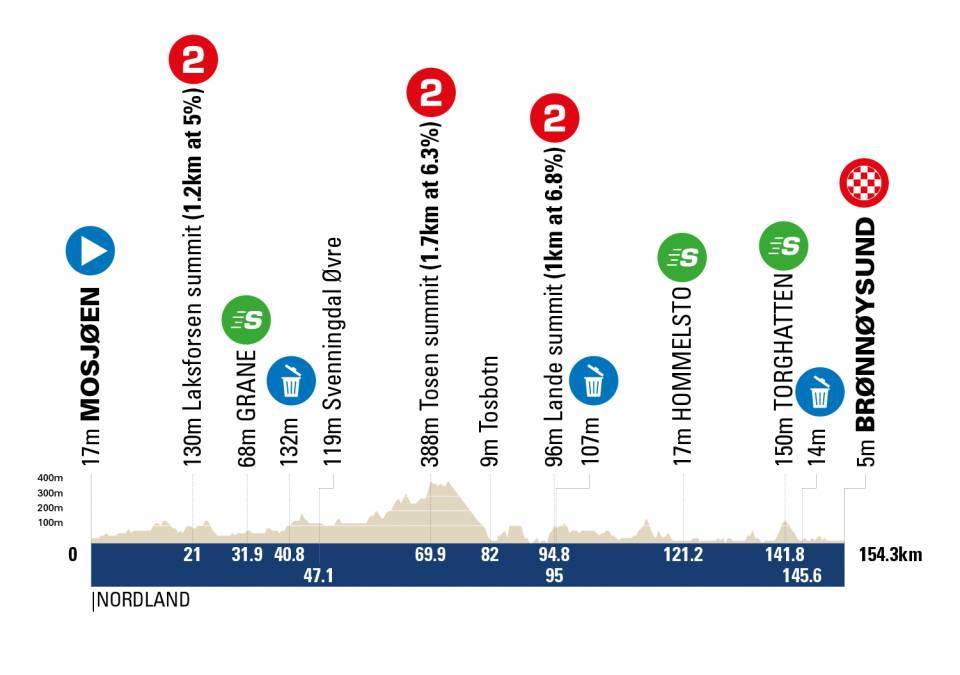
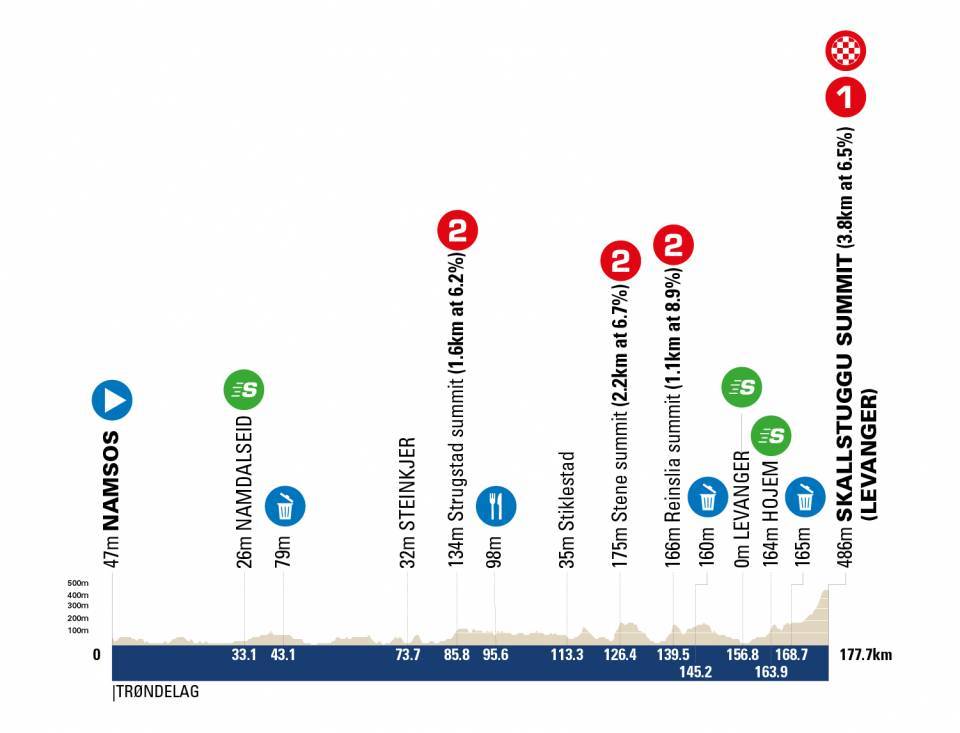
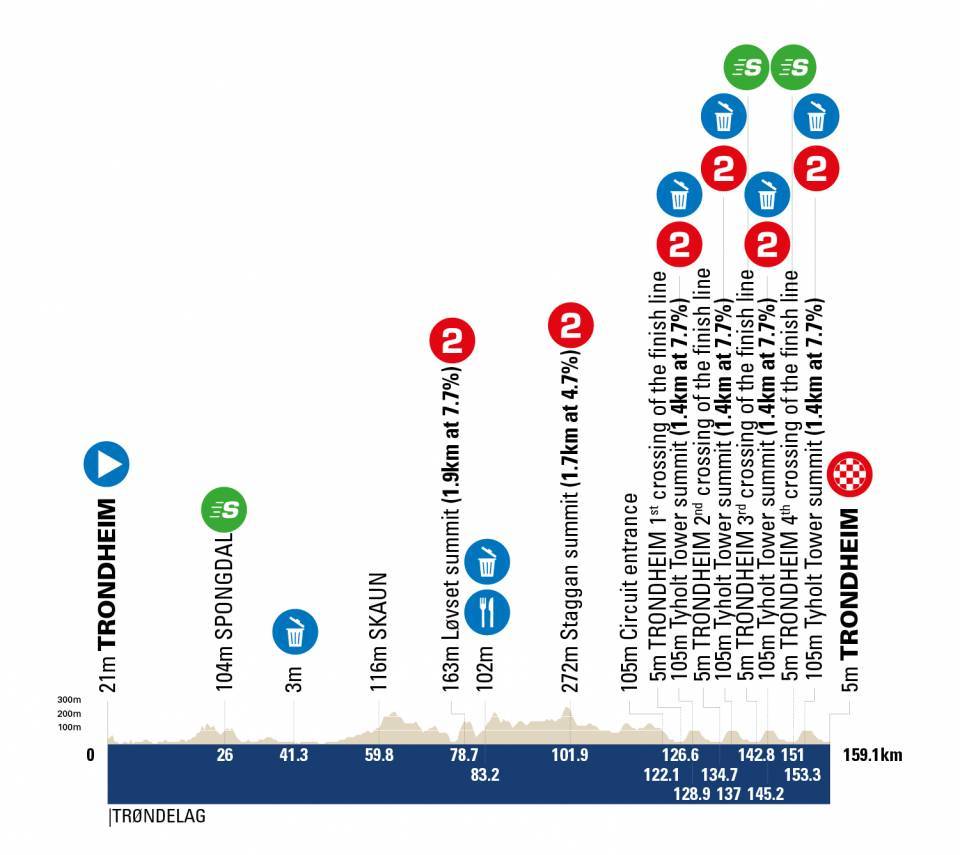
These riders, among a field of 114, will kick off the action with a 186.8km out-and-back stage in Mo i Rana, the small city hosting the race for the first time on stage 1. The day's route largely runs along the E6 road to the south taking the riders twice up the first-category Korgfjellet summit (9.1km at 5.8%) as well as the second-category Elsfjord summit (1.7km at 6.5%).
There are no classified hills inside the final 75km of the stage, however, with the main difficulties instead coming via the hilly finishing circuit in Mo i Rana. The three 10.6km circuits feature a 600-metre uphill run at 4% – not the hardest finish but one on which puncheurs can shoot their shot.
Stage 2 sees the peloton race 154.3km from Mosjøen to Brønnøysund on what looks to be the only certain sprint stage of the race. Three second-category climbs along the way should prove no real impediment to the likes of Groenewegen and Bol, though like the rest of the stages it's likely to be run in wet and rainy conditions.
Saturday's penultimate stage figures to be the GC decider, featuring as it does a summit finish at the Skallstuggu summit above Levanger. The 177.7km day features three second-category climbs along the route, but the day should be all about the finale.
It's not the toughest finishing climb in the world, and at 3.8km with an average of 6.5% isn't as tough as last year's Målselv summit. It should prove decisive as far as the final destination of the yellow jersey, though the gaps are expected to be tight.
"It's not the longest climbs this year and the field is quite strong, so I think the GC fight will be very close," Edvald Boasson Hagen said at the team presentation on Wednesday. "We will see how it plays out during the days."
Saturday's final stage brings the riders to the southernmost point of the race and the city of Trondheim, the third-biggest in Norway. Following the familiar format of recent years, the race will conclude with a hilly circuit race, this time featuring five laps of an 8.1km circuit in the city.
The laps will come with the 1.4km, 7.7% climb of the Tyholt Tower summit peaking at just over 6km from the finish line, a potential spot for anyone lying close to the top of the general classification to launch a last-ditch race-winning attack.
"It's going to be an interesting race because I think it might be a little bit unpredictable," Simon Clarke said. "Maybe the days that are not necessarily the GC day could end up mixing things up and end up being the decisive days.
"Even [stage 1] can potentially decide the GC if there is some bad weather and it becomes a tough race. I think we have to be ready from kilometre one tomorrow, as in the next few days anything can happen."
The 'midnight sun' yellow jersey is once again the main prize at the race, accompanied by a new-look trophy as well as €7,230, part of a total prize pot of €69,540. The green points jersey has been replaced by a dark blue look, while the climbers jersey (there are 13 second-category climbs and three first-category climbs on the route) has switched from orange to one adorned by peacock feathers.
The best rider under the age of 25 takes the white jersey, while there's also a fifth jersey to award the 'teammate of the day'. However, the white jersey, which features blue and red arms, is only awarded on the podium and won't be seen in the peloton due to UCI rules.
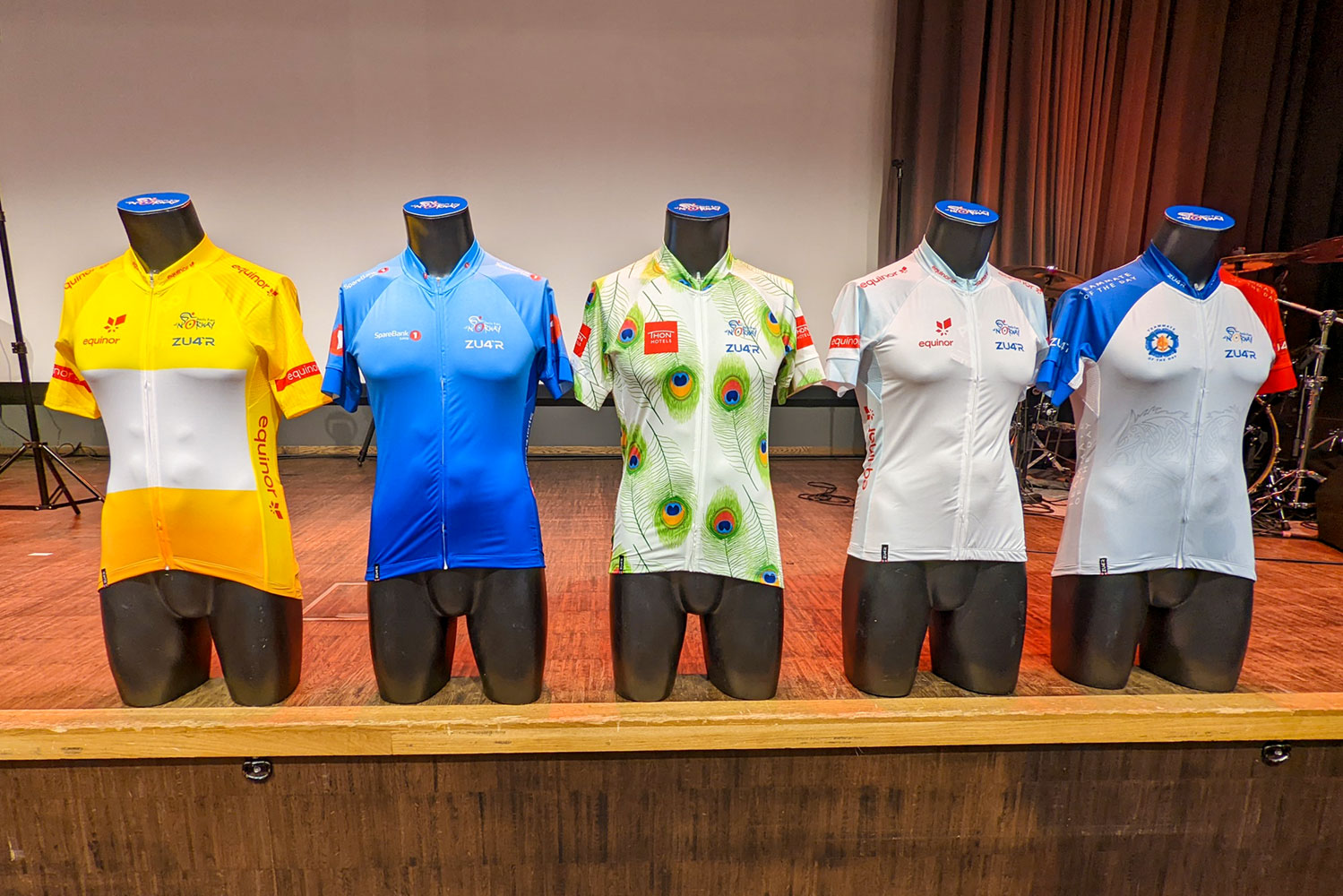
The latest race content, interviews, features, reviews and expert buying guides, direct to your inbox!

Dani Ostanek is Senior News Writer at Cyclingnews, having joined in 2017 as a freelance contributor and later being hired full-time. Before joining the team, she had written for numerous major publications in the cycling world, including CyclingWeekly and Rouleur. She writes and edits at Cyclingnews as well as running newsletter, social media, and how to watch campaigns.
Latest on Cyclingnews
-
American Criterium Cup: Aline Seitz seizes series lead with win in Downer Grove while Ben Oliver outsprints men's leader Brody McDonald
Mejías and Summerhill secure ACC sprint leads with fifth-place finishes in Wisconsin -
2025 Road National Champions index
Elite men and women who won their national road championships titles in road race and individual time trial -
Tour de France Femmes 2025 - The GC favourites form guide
Analysing the key riders to watch in pursuit of the yellow jersey -
Don't miss out, you can save 45% on Tour de France stage-winning tyres in this early Prime Day deal
It's our best road cycling tyre choice and you can get two Continental GP5000 S TR tyres for under £100 at Merlin Cycles
